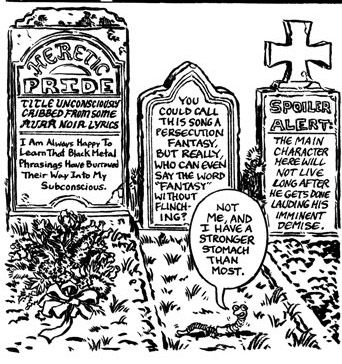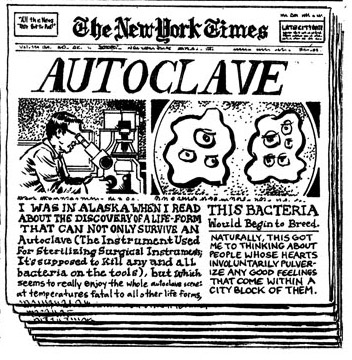OK, this one is just for plain fun: it’s the first Wordyard playlist.
When I was planning my campaign of global domination for Dreaming in Code I had visions of a multimedia onslaught. I’d pull together video clips that epitomized the nightmare of software scheduling, from A Brief History of Time to Groundhog Day to Lawrence of Arabia (that quicksand scene, of course), and music that similarly reflected the themes.
Didn’t get too far…but I did compile a list of songs that might be the book’s soundtrack. (Tip of the hat to Largehearted Boy‘s custom of inviting authors to assemble playlists for their novels, and to Josh Kornbluth‘s loving selection of apropos tunes to precede his solo shows.)
(1) “Put Your Hand On The Computer,” They Might Be Giants — ‘Cause that’s how it always starts.
(2) “Bill Gates Must Die,” John Vanderslice — Certainly, most open source developers aren’t obsessive sociopaths like this song’s narrator. But they have always harbored a certain animosity toward the founder of Microsoft, and sometimes it gets a little personal. (Bonus rationale: This song once fried my motherboard.)
(3) “Source Tags and Codes,” And You Will Know Us By the Trail of Dead — “Spend half a life deciding what went wrong / Trying to find out what took you so long.”
(4) “Dot Dash,” Wire.
(5) “Systems Crash,” Guided By Voices.
(6) “I Want to Live on an Abstract Plain,” Frank Black.
(7) “Information Age,” Damon and Naomi.
(8) “Waiting for the Great Leap Forward,” Billy Bragg.
(9) “Raymond Chandler Evening,” Robyn Hitchcock — Chandler the software is named for the novelist. But the song’s last line (“And I’m lurking in the shadows / ‘Cause it hasn’t happened yet”) echoes my software epic’s in medias res ending, too!
(10) “Your Belgian Things,” the Mountain Goats — “The arteries are clogging in the mainframe / There’s too much information in the pipes.”



